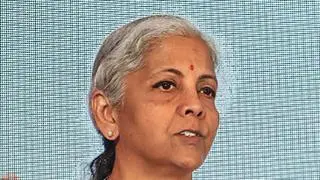New Delhi, October 11: Sweden has expressed willingness to partner with India on green steel-making with the scope of collaboration that includes carrying out joint studies, small scale pilots and experiments with new technologies like switching to hydrogen-based steel making processes as against existing coal-fired ones.
According to the draft documents with the Ministry of Steel, which was accessed by businessline, while India and Sweden will be the key partner countries, there will be “other partner countries” supporting these pilot projects (on green-steel making).
Funding sources to be explored through international agencies include UNIDO (United Nations Industrial Development Organisation), IEA or OECD, World Bank, among others, as well as possible partnerships with private fund managers.
Ministry officials said that the pilots are to be carried out under the Industry Transition Platform: India Pilot, with specific focus on hard to abate sectors that are key stakeholders in the global climate action, and specific interventions will be explored.
Incidentally, the Ministry of Environment, Forests and Climate Change, have sought suggestions from the Ministry of Steel on various proposals of the project following which finalisation of the letter of intent with the Swedish side will be carried out.
Reducing GHG emissions
According to an initial report by the Swedish Research Institute for Mining, Metallurgy and Materials (Swerim), in India, large amounts of iron ore produced are below the 58 per cent (iron content) grade and hence processes must be developed to use lower grade ore in steel making through technological interventions.
Reducing dependence or usage of coal fired blast furnaces have also been mentioned in the report.
It has also pointed out that the most cost-effective way to reduce carbon emissions in steel making is to replace the traditional ore-based blast furnaces with direct reduction technologies (like electric melting). This brings down usage of coke, carbon and the use of hydrogen or bio-carbon-based reductants (bio-mass, bio-fuel, bamboo) are to be explored.
As per government data, India’s aluminium greenhouse gas emission intensity is amongst the highest in the world.
For instance, the top two corporates (aluminium smelters) in India have emit 20.92 tonnes of CO2 per tonne of aluminum produced (tCO2e/t aluminium) and 19.76 tCO2e/ t aluminum. Against this, Rio Tinto has 6.19 tCO2e/t aluminum and Alcoa Corp just 5.76 tCO2E/t aluminium.
Similarly in steel, CO2 emissions average out at 2.55 tonnes of CO2 per tonne of steel produced against a global average of 1.85 tonnes. Ministry data shows, the company wise emission intensity stand at 2.5 for SAIL, 2.12 for Tata Steel, 2.59 for JSPL and 2.49 for JSW.
Pilot Phase
As per the draft sent to the Ministry of Steel, the pilot phase will run during the 2023-25 period, with the reporting on progress happening at COP29 and results being declared at COP30. “An evaluation will conclude the pilot phase and a decision should be taken to proceed or end the pilot in India,” it mentions.
Bilateral discussion (between Sweden and India) and the approach towards to be project will be taken up in Q3 and Q4 of 2023 (July – Sept and Oct - Dec) and development of assistance request will take place in Q4 of 2023 and Q1 of 2024 (Jan – Mar).
Other timelines include developing a platform by 2023, securing fund though 2023-24; while 2024 and 2025 goes into implementation and monitoring of the pilots.







Comments
Comments have to be in English, and in full sentences. They cannot be abusive or personal. Please abide by our community guidelines for posting your comments.
We have migrated to a new commenting platform. If you are already a registered user of TheHindu Businessline and logged in, you may continue to engage with our articles. If you do not have an account please register and login to post comments. Users can access their older comments by logging into their accounts on Vuukle.